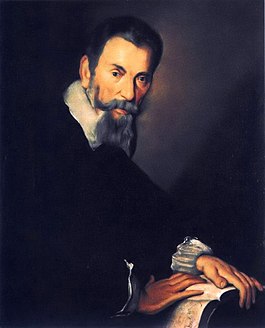Biography
François Fauché worked a lot during the 1980s with the ensemble of baroque music Les Arts Florissants, spearhead of the baroqueux movement, conducted by William Christie.
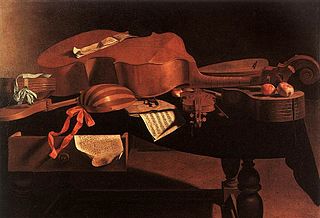
Les Arts Florissants is a Baroque musical ensemble in residence at the Théâtre de Caen in Caen, France. The organization was founded by conductor William Christie in 1979. The ensemble derives its name from the 1685 opera by Marc-Antoine Charpentier. The organization consists of a chamber orchestra of period instruments and a small vocal ensemble. Current notable members include soprano Danielle de Niese and tenor Paul Agnew, who has served as assistant conductor since 2007. Jonathan Cohen is also on the conducting staff. Christie remains the organization's Artistic Director.
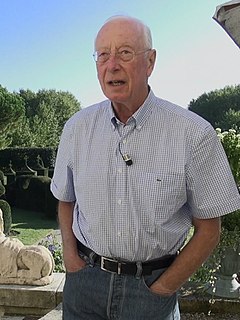
William Lincoln Christie is an American-born French conductor and harpsichordist. He is a specialist in baroque repertoire and is the founder of the ensemble Les Arts Florissants.
He was then one of the pillars of this ensemble, alongside Agnès Mellon, Jill Feldman, Monique Zanetti, Guillemette Laurens, Dominique Visse, Michel Laplénie, Étienne Lestringant, Philippe Cantor, Gregory Reinhart, Antoine Sicot etc.
Agnès Mellon is a French soprano who specializes in baroque music.
Jill Feldman is an American soprano who has acquired an international reputation for her interpretation of medieval, baroque and classical repertoires.
Monique Zanetti is a French soprano. She studied at the University of Metz, then with Elisabeth Grümmer. She first came to attention singing in the same first generation of French early music singers with Agnès Mellon and Gérard Lesne.
He is a member of the Ensemble Clément Janequin conducted by Dominique Visse, with whom he took part in numerous concerts in France and abroad, as well as in numerous recordings.
The Ensemble Clément Janequin is a French early music ensemble founded in 1978 and specializing in the chansons of the Renaissance and early Baroque.
Dominique Visse is a French countertenor and founder of the Ensemble Clément Janequin.
He was also a member of the Ensemble Organum and the European ensemble William Byrd.
Ensemble Organum is a group performing early music, co-founded in 1982 by Marcel Pérès and based in France. Its members have changed, but have included at one time or another, Josep Cabré, Josep Benet, Gérard Lesne, Antoine Sicot, Malcolm Bothwell. They have often collaborated with Lycourgos Angelopoulos and are influenced by Orthodox music.
This page is based on this
Wikipedia article Text is available under the
CC BY-SA 4.0 license; additional terms may apply.
Images, videos and audio are available under their respective licenses.
Gérard Lesne is a French countertenor. He also the founder and artistic director of the baroque music ensemble, Il Seminario Musicale.
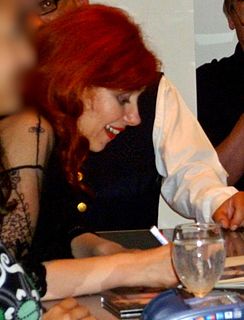
Patricia Petibon is a French soprano.
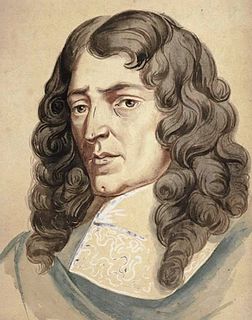
Les arts florissants is a short chamber opera in five scenes by Marc-Antoine Charpentier.

Paul Agnew is a Scottish operatic tenor and conductor.
Éric Bellocq is a French lutenist.

David et Jonathas, H. 490, is an opera in five acts and a prologue by the French composer Marc-Antoine Charpentier, first performed at the Collège Louis-le-Grand, Paris, on 28 February 1688. The libretto, by Father François Bretonneau, is based on the Old Testament story of the friendship between David and Jonathan.
La Chapelle Royale is a French ensemble of baroque music.
Hervé Niquet is a French conductor, harpsichordist, tenor, and the director of Le Concert Spirituel, specializing in French Baroque music.
Philippe Courbois was a French Baroque composer. It is commonly stated that he was maître de musique of the Duchess of Maine, but Michele Cabrini convincingly refutes this claim in his edition of Courbois's cantatas. At least three of his masses were performed for the King of France at Versailles. Sometime before 1710, Courbois published a book of seven cantatas with texts by Louis Fuzelier, who would later write the libretto of Les Indes Galantes. It is these cantatas for which he is most famous today
Sophie Daneman is a British soprano specializing in the baroque répertoire.
Étienne Lestringant is a contemporary French tenor specialising in the baroque repertoire.
Antoine Sicot is a contemporary French soloist singer specialising in the baroque repertoire for bass voice.
Philippe Cantor is a contemporary French bass-baritone.

Bruno Boterf is a contemporary French tenor, specialising in Baroque and early music.
Patrick Cohën-Akenine is a French classical violinist and conductor.
Jérôme Correas is a French conductor, harpsichordist and bass baritone.





